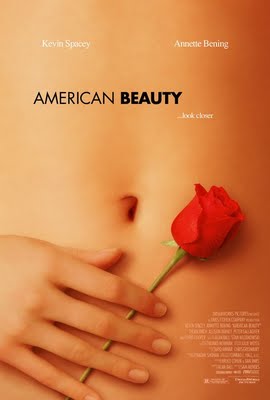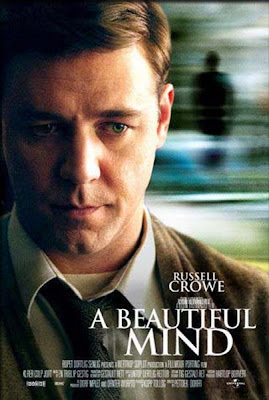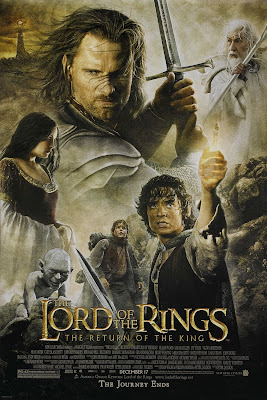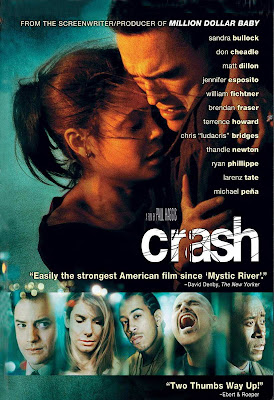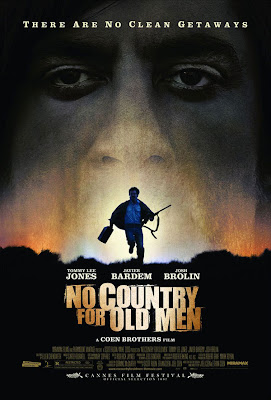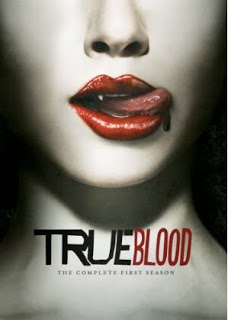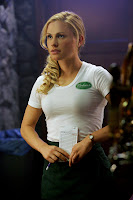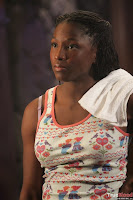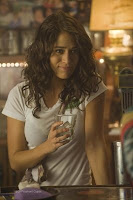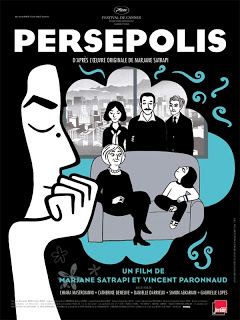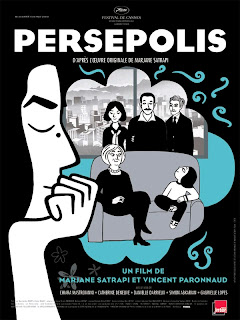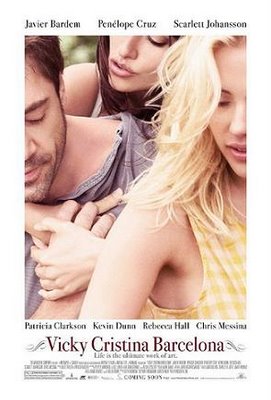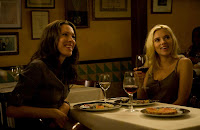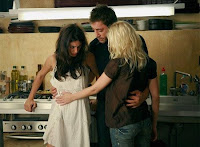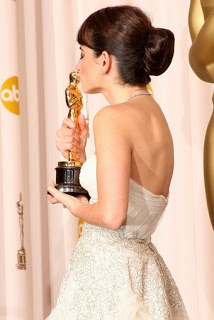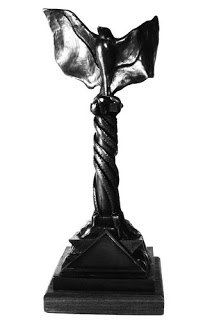I had a discussion with my husband after the film, and pointed out that most women perceive themselves as the protagonists of their own lives, not as an avid audience for men as they play out their stories. My experience throughout my life when watching movies like this has been to desperately try to find a place for myself among the male characters …
… The sad thing about this film is that I could have really enjoyed it otherwise. As I was watching it I wondered why I was feeling so fatigued, and I realized it was because it was yet another time that I was expected to happily stand in the sidelines and watch boys have lots of fun. That’s such a bummer to me nowadays that I can’t even pretend to be enthused anymore.
Male-Driven Film Nominees
Humpday: Two guys take their bromance to another level when they participate in an art film project.
Big Fan: Paul Aufiero, a hardcore New York Giants football fan, struggles to deal with the consequences when he is beaten up by his favorite player.
A Serious Man: A black comedy set in 1967 and centered on Larry Gopnik, a Midwestern professor who watches his life unravel when his wife prepares to leave him because his inept brother won’t move out of the house.
Two Lovers: A Brooklyn-set romantic drama about a bachelor torn between the family friend his parents wish he would marry and his beautiful but volatile new neighbor.
A Single Man: A story that centers on an English professor who, after the sudden death of his partner tries to go about his typical day in Los Angeles.
The Messenger: An American soldier struggles with an ethical dilemma when he becomes involved with a widow of a fallen officer.
Easier With Practice: In an effort to promote his unpublished novel, Davy Mitchell sets out on a road trip with his younger brother.
Crazy Heart: Bad Blake is a broken-down, hard-living country music singer who’s had way too many marriages, far too many years on the road and one too many drinks way too many times. And yet, Bad can’t help but reach for salvation with the help of Jean, a journalist who discovers the real man behind the musician.
Anvil: At 14, best friends Robb Reiner and Lips made a pact to rock together forever. Their band, Anvil, hailed as the “demi-gods of Canadian metal,” influenced a musical generation that includes Metallica, Slayer, and Anthrax, despite never hitting the big time.
More Than a Game: This documentary follows NBA superstar LeBron James and four of his talented teammates through the trials and tribulations of high school basketball in Ohio and James’ journey to fame.
Un Prophete: A young Arab man is sent to a French prison where he becomes a mafia kingpin. (French/Arabic/Corsican)
Adventureland: A comedy set in the summer of 1987 and centered around a recent college grad who takes a nowhere job at his local amusement park, only to find it’s the perfect course to get him prepared for the real world.
The Vicious Kind: A man tries to warn his brother away from the new girlfriend he brings home during Thanksgiving, but ends up becoming infatuated with her in the process.
Cold Souls: Paul Giamatti stars as himself, agonizing over his interpretation of “Uncle Vanya.” Paralyzed by anxiety, he stumbles upon a solution via a New Yorker article about a high-tech company promising to alleviate suffering by extracting souls.
Bad Lieutenant: While investigating a young nun’s rape, a corrupt New York City police detective, with a serious drug and gambling addiction, tries to change his ways and find forgiveness.
Female-Driven Film Nominees
Sin Nombre: Honduran teenager Sayra reunites with her father, an opportunity for her to potentially realize her dream of a life in the U.S. Moving to Mexico is the first step in a fateful journey of unexpected events. (Spanish)
Precious: In Harlem, an overweight, illiterate teen who is pregnant with her second child is invited to enroll in an alternative school in hopes that her life can head in a new direction.
Amreeka: A drama centered on an immigrant single mother and her teenage son in small town Illinois. (English/Arabic)
Everlasting Moments: In a time of social change and unrest, war and poverty, a young working class woman, Maria, wins a camera in a lottery. The decision to keep it alters her whole life. (Swedish/Finnish)
The Maid: A drama centered on a maid trying to hold on to her position after having served a family for 23 years. (Spanish)
Mother: A woman is forced to investigate a murder after her son is wrongfully accused of the crime. (Korean)
An Education: A coming-of-age story about a teenage girl in 1960s suburban London, and how her life changes with the arrival of a playboy nearly twice her age. (English, from the UK)
Ensemble-Driven Film Nominees
The Last Station: The Countess Sofya, wife and muse to Leo Tolstoy, uses every trick of seduction on her husband’s loyal disciple, whom she believes was the person responsible for Tolstoy signing a new will that leaves his work and property to the Russian people.
500 Days of Summer: An offbeat romantic comedy about a woman who doesn’t believe true love exists, and the young man who falls for her.
Paranormal Activity: After moving into a suburban home, a couple becomes increasingly disturbed by a nightly demonic presence.
Which Way Home: Which Way Home is a feature documentary film that follows unaccompanied child migrants, on their journey through Mexico, as they try to reach the United States. (English/Spanish)
October Country: October Country is a beautifully filmed portrait of an American family struggling for stability while haunted by the ghosts of war, teen pregnancy, foster care and child abuse.
Food, Inc.: An unflattering look inside America’s corporate controlled food industry.
